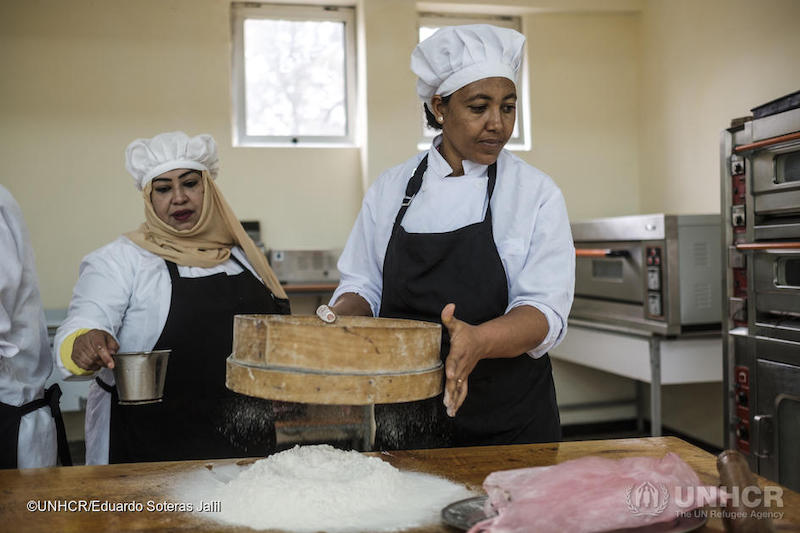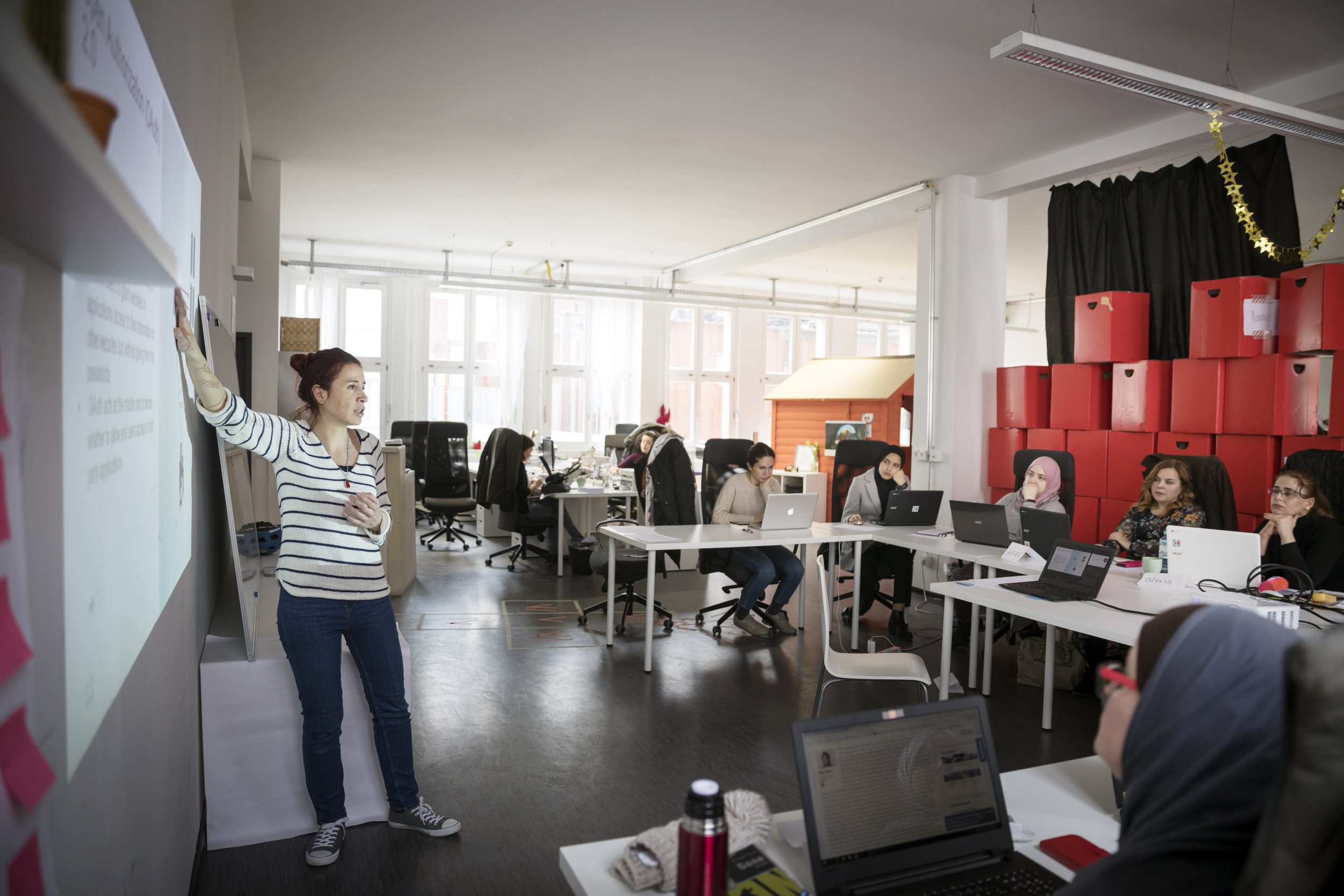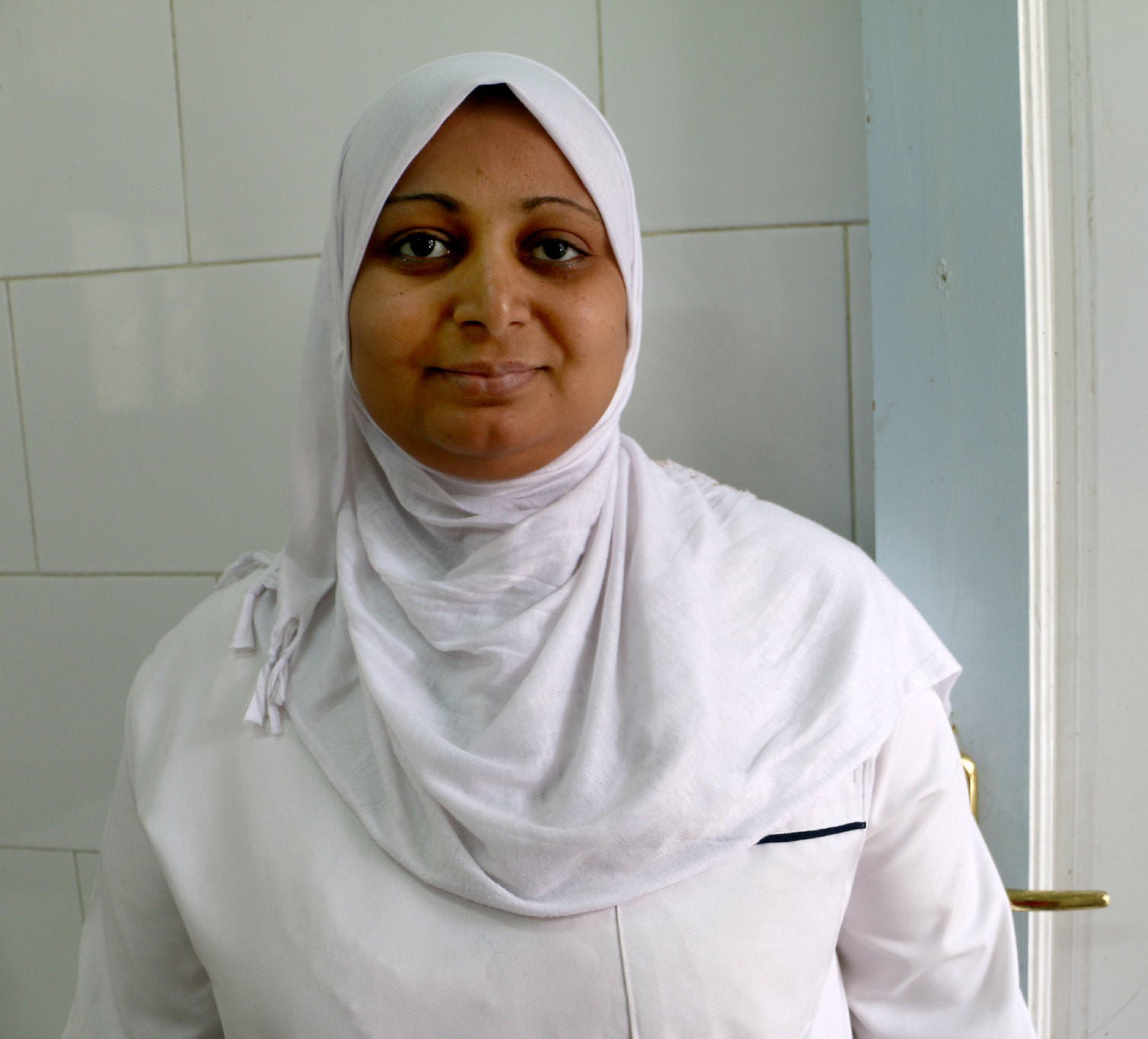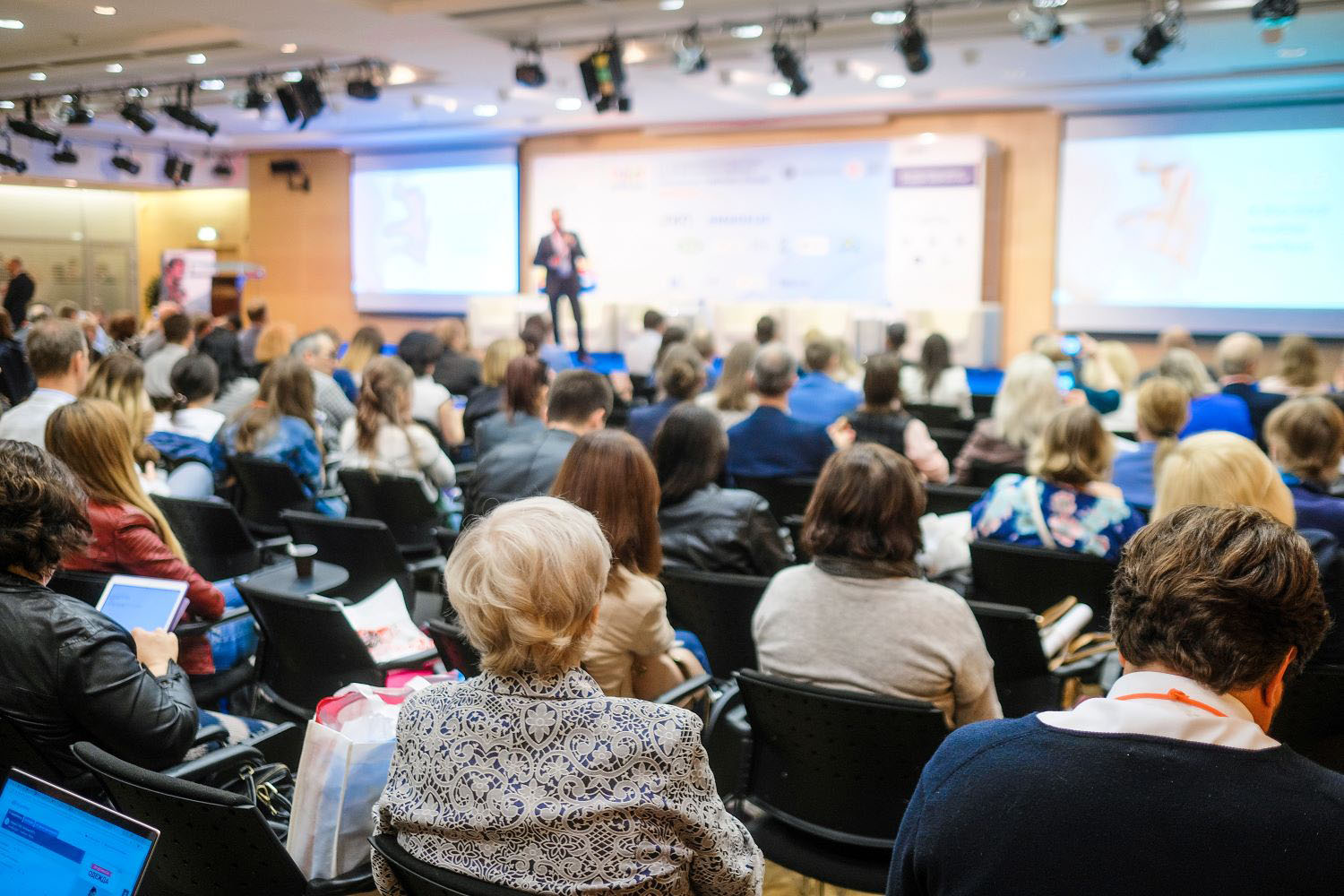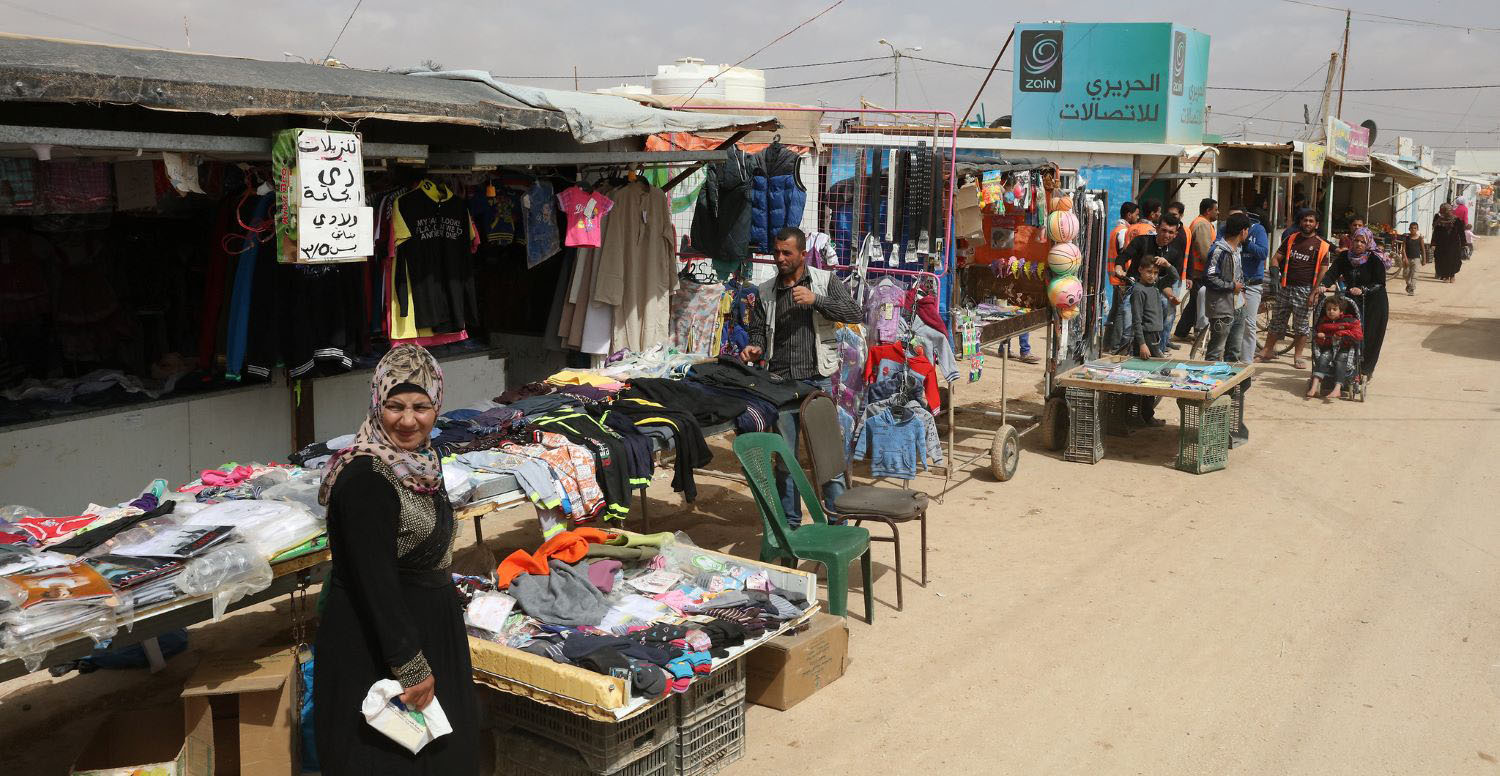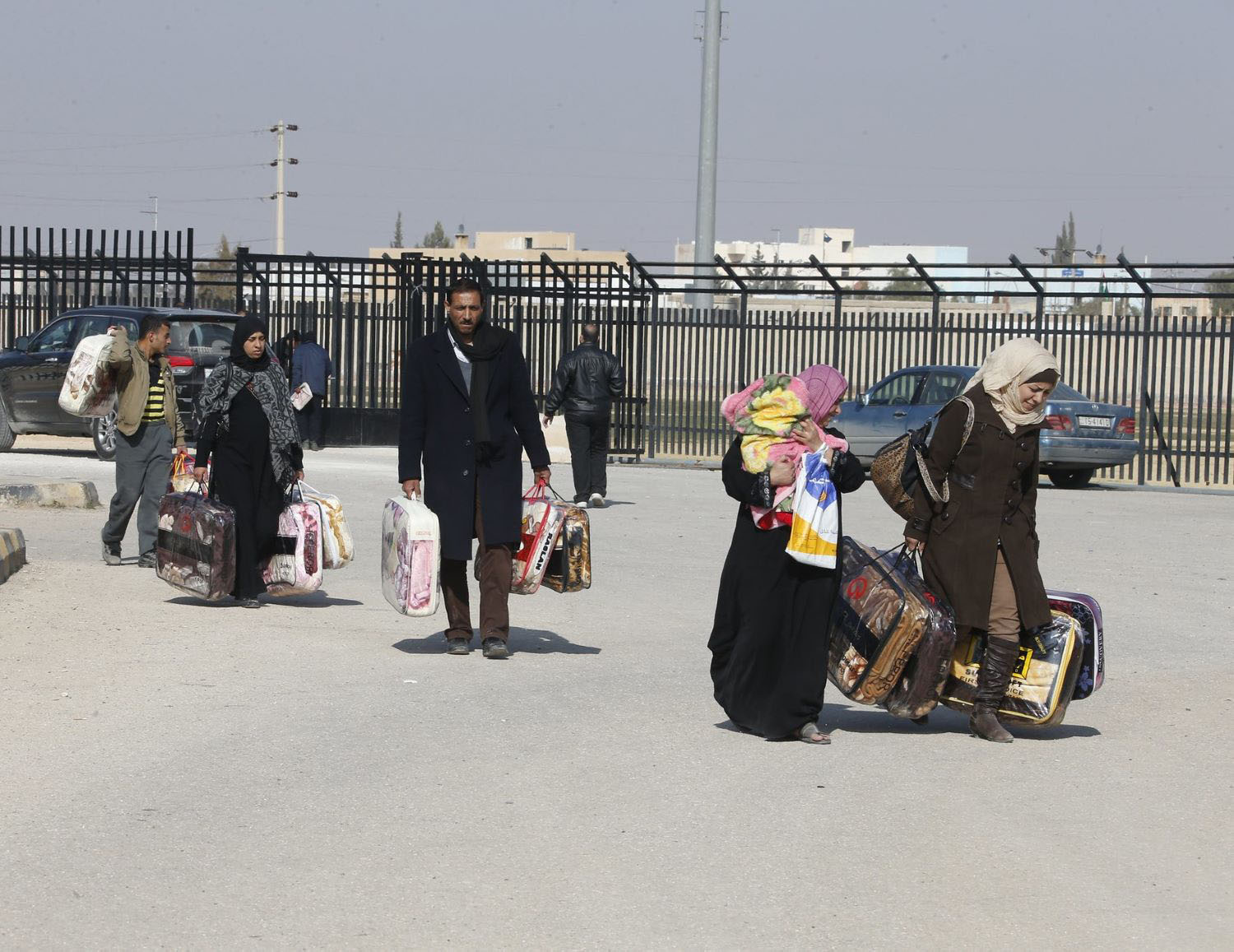Recommended
Three years ago, the Center for Global Development (CGD) and Refugees International launched a new initiative—#LetThemWork: Expanding Labor Market Access for Refugees—with the generous support of the IKEA Foundation and Western Union Foundation. We learned a lot and are proud of what we accomplished, but also realized there is much more work to be done. So what are our plans going forward?
Reflections on phase I
The aim of phase I of the #LetThemWork initiative was to explore the barriers that refugees and forced migrants faced in accessing the labor markets in their host countries, and, through a combination of research and outreach, work to overcome these barriers. This was done within three pillars:
- Global level. We wanted to answer questions of global policy significance, like what de facto rights refugees have; whether granting labor market access reduces host community support for refugees; and what the relationship is between policies and international financing.
- Country level. We picked four focus countries—Colombia, Peru, Kenya, and Ethiopia—to enable us to go deeper in understanding the barriers faced by refugees. We tailored specific recommendations to policymakers and the international community.
- Private sector level. We wanted to mobilize employers and the business community, not only to hire refugees, but also to support their journeys in the labor market (through financial and other support) and push for policy change in host countries.
Since then, we’ve published nine research papers, held five events, written 18 blog posts, and released two animations. We’ve explored the impact of COVID-19 on refugee economic integration, and shifted our plans to cope with COVID-19 and local political turmoil. We’ve engaged with stakeholders through our Advisory Group, country-level partnerships, and countless bilateral and multilateral meetings. We have spoken with refugees, civil society groups, NGOs, and other experts. So what have we learned about research and outreach in this space?
Lesson 1: The support of local partners is invaluable
Developing local partnerships was always intended to be part of the #LetThemWork initiative. However, we didn’t anticipate it being a large part; indeed, our original budget for such partnerships was minimal.
COVID-19 changed this calculus. With the team unable to travel, we increased the budget available to local partners and sought relationships in all four focus countries. These relationships were not always smooth; developing close ties is time-consuming and challenging at a distance, and it is difficult to impose a research and outreach agenda on partners who did not have the opportunity to provide input on that agenda in the first place. Yet their support was invaluable to the accuracy and impact of our work, and the relationships we cultivated have formed the basis for further work.
These experiences also reminded us that in most countries, national-level policy change is only half the battle. How policies are carried out at the local level—amidst local officials and businesses—is often what really matters. These partnerships, therefore, are critical to conducting outreach beyond national capitals.
Lesson 2: Focus on the areas where value can be added
In the refugee space, it can be difficult to balance the realistic and pragmatic with the ideal outcome. For example, research by us and others has consistently shown that removing all barriers to economic inclusion for refugees would be a net gain. However, this type of messaging does not always resonate with national and local leaders. There is a long history of knee-jerk reactions to refugees that include scapegoating and imposing restrictions on their freedom of movement and right to work. A balance must therefore be struck between conducting research and outreach that “shoots for the moon” and establishing realistic and pragmatic goals in light of political contexts.
We also struggled to balance the interests of our organizations, with CGD approaching this issue from an “economic contribution” lens and Refugees International approaching it from a “human rights” lens. While both are important, achieving a balance did require us to work through difficulties in how we structured our research questions and outreach goals.
Lesson 3: Be mindful of the informal sector
When the initiative was initially conceived, its title was “Expanding Formal Labor Market Access for Refugees and Forced Migrants” (emphasis added). Up to that point, our research and discussions with stakeholders gave us confidence that facilitating formal sector work for refugees and forced migrants would provide the best wages and working conditions.
Yet, in many refugee-hosting countries, the informal sectors are large, accommodating most refugees as well as hosts. While access to formal employment is critical, a labor market access agenda must be mindful of the informal sector and plan research and outreach around that as well.
Lesson 4: Be flexible to changing circumstances
New refugee events are constantly emerging, and will likely increase in the future due to climate change and other forms of instability. In addition, as political leaders change, new policies and innovations may arise, and old policies may be quashed. This tumultuous context poses a significant challenge for those pursuing evidence-based outreach and makes impact difficult to achieve and measure. Policy gains can quickly be wiped out with a change in political leadership or a new crisis.
We witnessed wide-ranging political changes in all four focus countries and several large political crises, including the civil war in Ethiopia and the announced closure of the refugee camps in Kenya alongside the passing of major new legislation. We were also approached by some governments to pursue more intense collaboration on research and outreach that required more staff time than anticipated. In such circumstances, being flexible to respond to changing circumstances (and therefore gain more policy impact) is crucial.
Our plans for phase II
We have now taken these lessons into phase II of our initiative, which was launched this week with the generous support of the IKEA Foundation and Conrad F. Hilton Foundation. Our aim is to ensure that refugees and other forced migrants are able to access secure and sustainable lives and livelihoods, shifting from a short-term crisis approach to a medium- to long-term response that allows for socioeconomic inclusion and self-reliance.
So what are we focusing on? We decided to move away from rooting our work in large case studies, instead moving to a more thematic-oriented approach that enables us to pick up topics that are less explored in the research and policy space, and to delve into countries as and when appropriate. As such, we have four thematic pillars:
- Sustainable financing. In recent years, international aid actors have sought out more transparency and accountability in refugee financing, as well as ways to seek out durable solutions to long-term displacement. Financing institutions and development actors have taken on more direct roles in working with refugees. We want to conduct more formal, structured research and engagement with the World Bank on its financing toward refugees, and engage in other refugee financing initiatives as they relate to economic inclusion.
- Physical location. Humanitarians are currently experimenting with two approaches to assisting refugees with shelter: (1) a hybrid settlement model, where additional housing for hosts and displaced people is constructed around cities and towns; and (2) relocation, where displaced people in border areas are assisted in their movement to areas with more economic growth and fewer displaced people. We want to explore which countries are experimenting with these models and evaluate their impact.
- Climate. Refugees and displaced people have limited access to economic opportunities, but when they do, they often work in economic sectors that are highly sensitive to climate change. Despite this, climate change is rarely factored into refugee and displaced peoples’ job prospects. We want to explore how refugees and displaced people can build resilience through economic prospects in the face of climate change (including the jobs they have access to), how they participate in national adaptation plans, and their access to climate change adaptation financing.
- Social cohesion and public attitudes. Host community attitudes affect refugee outcomes through daily economic and social interactions, and, in the aggregate, affect the politics and policies enacted by host governments. However, we have relatively little data about public attitudes within refugee-hosting low- and middle-income countries, and little understanding of “what works” to promote social cohesion between refugees and hosts. We want to tackle both issues.
It’s very early days for the initiative, but we are very excited to explore these issues and build on our lessons learned in phase I. If you would like to learn more, please get in touch with Cassandra Zimmer (czimmer@cgdev.org) and keep an eye on our webpage.
Disclaimer
CGD blog posts reflect the views of the authors, drawing on prior research and experience in their areas of expertise. CGD is a nonpartisan, independent organization and does not take institutional positions.


